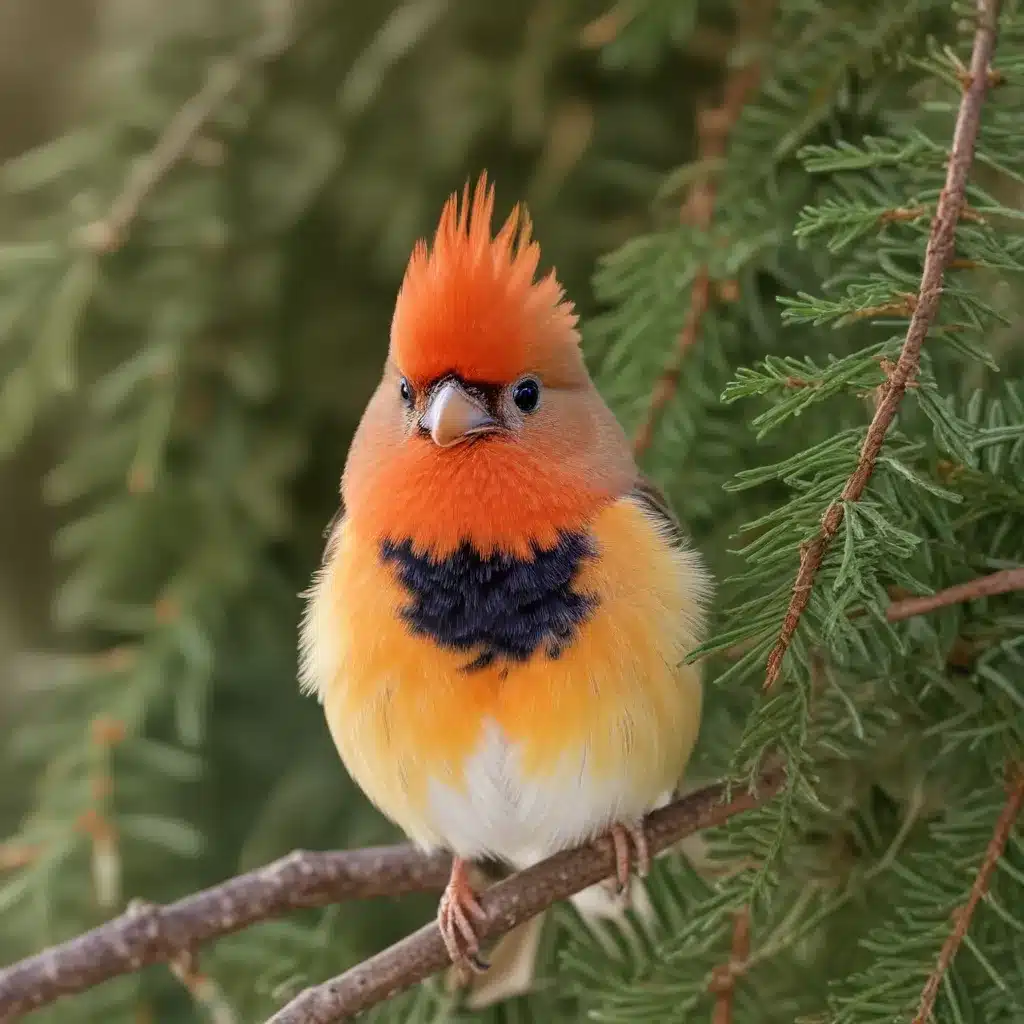
As an experienced avian caretaker and expert in the field, I’m excited to share my comprehensive insights on optimizing the overall health and well-being of our feathered companions. Whether you’re a seasoned bird owner or just starting your avian journey, this article will equip you with the knowledge and strategies to ensure your birds thrive both physically and psychologically.
Avian Physiology and Anatomy
To truly understand how to care for our avian friends, we must first delve into their unique physiology and anatomy. Birds possess a remarkable skeletal structure, adapted for the demands of flight. Their bones are lightweight yet incredibly strong, with hollow cavities that reduce overall weight. This specialized skeleton is complemented by a robust muscular system, enabling the complex wing movements and powerful flight capabilities that define the avian experience.
Equally impressive is the avian respiratory system, which is far more efficient than that of mammals. Birds have a series of air sacs that work in tandem with their lungs, allowing for a continuous flow of oxygen-rich air during both inhalation and exhalation. This adaptation is a key factor in powering the energetic demands of flight and sustaining overall health.
Avian Nutrition and Feeding
Providing a balanced and species-appropriate diet is crucial for maintaining the physical and mental well-being of our feathered friends. The composition of an avian diet must take into account the unique nutritional requirements of each species, as well as their natural foraging behaviors and preferences.
A well-designed diet should incorporate a variety of nutrient-dense foods, including fresh fruits, vegetables, grains, and even the occasional protein source. It’s important to understand the specific dietary needs of your bird, as deficiencies or imbalances can lead to a host of health issues. Observing your bird’s feeding behaviors can also provide valuable insights into their individual preferences and needs.
Avian Behavior and Psychology
Birds are highly intelligent and social creatures, with complex emotional and psychological needs. Understanding their intricate social dynamics, as well as their innate drives for enrichment and stimulation, is crucial for ensuring their overall well-being.
Providing ample opportunities for exploration, problem-solving, and social interaction can have a profound impact on a bird’s mental health. This may involve introducing novel toys, foraging challenges, and even carefully supervised interactions with other birds or humans. Recognizing and addressing sources of stress, such as environmental changes or lack of socialization, is also key to maintaining a bird’s psychological balance.
Avian Fitness and Training
Just like humans, birds require regular physical activity to maintain optimal health. Designing age-appropriate exercise routines that cater to a bird’s unique capabilities and limitations can help ensure they stay fit and active.
Positive reinforcement training can also be a powerful tool for enhancing a bird’s physical and mental well-being. By teaching them simple tricks and behaviors, we can not only provide enrichment but also strengthen the bond between bird and caretaker. This approach helps build trust, reduce stress, and even address undesirable behaviors.
Avian Health and Wellness
Proactive preventative care is essential for maintaining the overall health and longevity of our avian companions. Familiarizing ourselves with common health conditions, such as feather-plucking, respiratory issues, and digestive problems, allows us to quickly identify and address potential concerns.
Regular check-ups with an avian veterinarian, coupled with a diligent home care routine, can help catch problems early and facilitate prompt treatment. In cases of injury or illness, a well-planned rehabilitation and recovery process can help birds regain their strength and vitality.
Avian Habitats and Environments
The design and management of a bird’s captive environment plays a crucial role in their physical and psychological well-being. By understanding the natural habitats and behaviors of different species, we can create enclosures that mimic these conditions and provide the necessary resources for our feathered friends to thrive.
Factors such as cage size, perch placement, lighting, temperature, and humidity must all be carefully considered to ensure a bird’s needs are met. Incorporating enrichment elements, like foraging opportunities and hiding spots, can further enhance the captive experience and promote natural behaviors.
Avian Conservation and Research
As avian caretakers, we have a responsibility to not only care for our individual birds but also contribute to the broader efforts of avian conservation and research. Monitoring population trends, supporting rehabilitation and reintroduction programs, and engaging in emerging research initiatives can all have a meaningful impact on the well-being of bird species worldwide.
By staying informed about the latest advancements in avian science and participating in conservation efforts, we can play a vital role in safeguarding the future of our feathered companions.
In conclusion, optimizing the physical and psychological health of birds requires a multifaceted approach that encompasses a deep understanding of avian physiology, nutrition, behavior, fitness, wellness, and environmental considerations. By staying informed, adapting our care practices, and fostering a strong bond with our feathered friends, we can ensure they live happy, healthy, and enriched lives. Remember, the rewards of providing exceptional avian care go far beyond the joy of their companionship – they contribute to the preservation of these remarkable creatures and the ecosystems they inhabit.
For more information on bird care and the latest advancements in avian science, be sure to check out the resources available at Mika Birds Farm. Their team of experts is dedicated to supporting bird owners and contributing to the well-being of our feathered companions.


